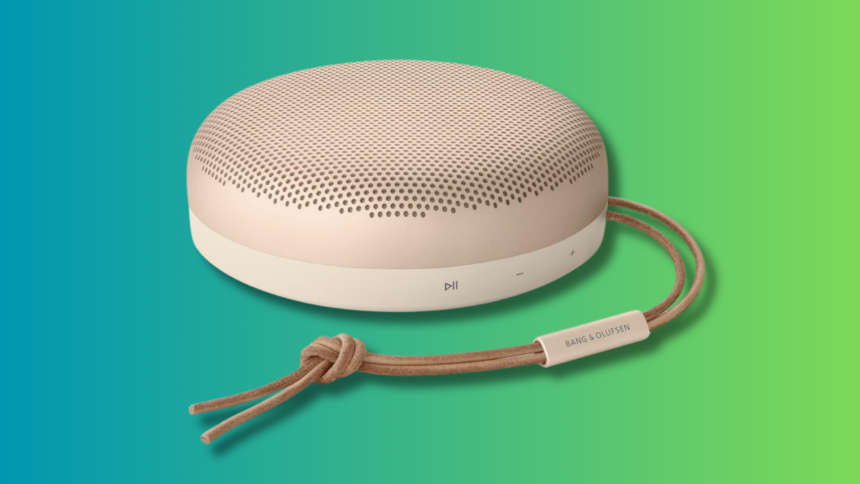Discover the Bang & Olufsen Beosound A1 (2nd Gen) Speaker at a Bargain Price
The Bang & Olufsen Beosound A1 (2nd Gen) is a compact speaker that delivers significant sound quality relative to its size. Originally retailing for $299.99, it’s currently available on Woot for just $139.99 for a limited time—13 days or until stocks last. Amazon Prime members will enjoy free shipping, whereas others will incur a $6 shipping fee. Please note that delivery is restricted to the contiguous U.S. only, excluding Alaska, Hawaii, and PO boxes.
This Bluetooth speaker received an Editor’s Choice award from PCMag at its launch in 2020, and it continues to impress today.
Weighing in at a manageable 1.2 pounds, the Beosound A1 isn’t feather-light, but it includes a leather strap for effortless portability. With an IP67 certification, it’s resilient to dust and can withstand immersion in water, making it the ideal companion for outings. The setup process is streamlined through the Bang & Olufsen app, enabling you to access its integrated Alexa, which will require linking your accounts beforehand. The speaker is compatible with Bluetooth 5.1 and supports AAC and AptX Adaptive audio codecs, but lacks LDAC support for high-resolution audio playback. The Beosound A1 boasts a battery life of up to 18 hours, although this will vary with your volume settings.
Powered by a 3.5-inch woofer and a 0.4-inch tweeter with 30-watt Class D amplifiers, this compact speaker delivers remarkable sound volume. It produces rich bass that is capable of vibrating surfaces, yet it remains stable during playback, ensuring clear sound at both moderate and high volumes. Its tuning favors bass, suitable for its small size, although at maximum volume, digital signal processing (DSP) engages to mitigate distortion, narrowing the sound slightly, according to the PCMag review. With a frequency response range from 55Hz to 20kHz, the sound quality includes substantial low-end and crisp highs, but it might not cater to audiophiles seeking a perfectly flat studio sound. The app provides an equalizer feature, albeit with a unique circular interface rather than traditional sliders.
What do you think?













